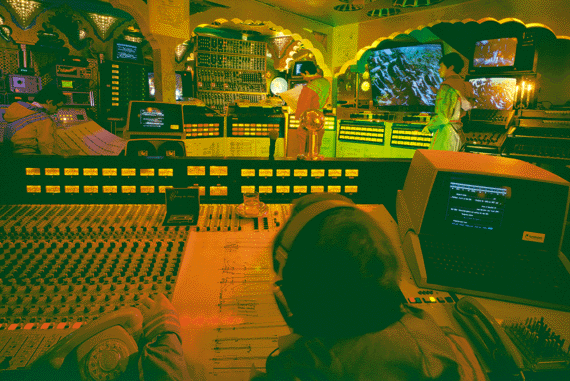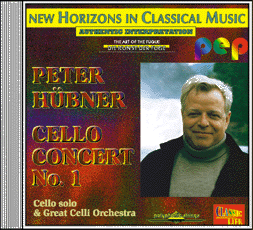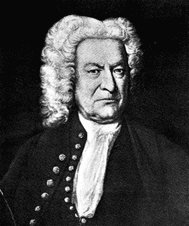Micro
Music Laboratories
He
who chains himself to the instrument, will never advance to the magic kingdom
of music.
And I ask myself: what do some experts imagine the process of composing to be
like, and what is their understanding of faithfulness to the original?
If Beethoven had experienced a scratching inside, as part of the composition,
he would certainly have noted it, because scratching on a cello is not difficult
at all, and to cough and pant is even easier.
But let’s get back to what Bach regarded as unimportant.
This only shows
that these musical experts have no insight into the process of the natural
creation of music.
Nature creates a classical composition in a tone creator, not as a song of
praise to instruments – natural music creation is not an acoustic end
in itself: when a natural composition is created in the mind, i.e. when nature
brings out a piece of music in the composer’s creative imagination, then
it does so to stimulate the natural evolution of his diverse inner powers
of life.
In this inner-human
developing process, the structural development of music plays the main part,
because through this, the dynamic interaction and development of his powers
of life are shown – the thought of instruments or musicians or an orchestra
has no space in this.
Later, the classical composer then tries to make the tone creation that has
grown inside him sound to the listener as true to nature as possible in the
outer acoustic space.
And if, e.g., he can best express a certain part of this inner musical creation
with a horn, then he will instrument this part for a horn.
But what is he to do if this part of the piece is to sound for such a long
time that the horn player runs out of breath, or if his inner inspiration
demands a range which the physical instrument doesn’t have, or if the
passage heard inside turns out to be so difficult for the player that he can’t
even play it?
So far, a classical composer had to make concessions to the composition he
heard inside, meaning he had to restrict its statement – mutilate it,
so to speak.
But
with today’s electronic means, for instance, he can have a horn sound
as long as required, and at exactly
the range and
degree
of difficulty his musical inspiration tells him to, and in this way he will
present the work, to a large extent, as it sounds inside him.
In this respect, the most important thing is the life structure of the composition
– the natural living logic it possesses – , and not so much the
tone colour, as so many followers of so-called natural instruments assume.
Johann Sebastian Bach, in his time, left no doubt that it is just that natural
structure of a composition, which awakens a superior quality of life in the
listener, and that tone colour, volume and dynamics, etc. – which today
are thought of so highly – are of absolutely secondary significance:
as such, don’t even touch the actual field of music.
|
|
|
Johann
Sebastian Bach, in his time, left no doubt that it is just that natural
structure of a composition, which awakens a superior quality of life
in the listener, and that tone colour, volume and dynamics, etc. –
which today are thought of so highly – are of absolutely secondary
significance: as such, don’t even touch the actual field of music. |
Just compare it
to a sculpture. Whether the Pieta by Michel-angelo were formed in this marble
or that marble, or even in plaster or wood, it would hardly do any harm to
the artistic statement on the inner spiritual life of this work of art.
It is the structure in which the living statement finds its expression –
not the material. And the same applies to a music creation which has grown
naturally.
Some music professionals say during my recordings: “The cello in that
concert sounds much too pure; with a real cello, you must still be able to
hear the bow scratching the string”, or: “That piece is so impersonal,
everything is so perfect, you never hear anybody breathing or coughing, or
just playing slightly out of tune”.
Such music professionals have never entered the inner realm of music, and,
as educated experts, are further away from the experience “music”
than the plain man and woman in the street, who, supposedly, don’t know
the first thing about classical music.
 From
the pioneering times of the Micro Music Laboratories
From
the pioneering times of the Micro Music Laboratories
The Composer Peter
Huebner at the mixing console
Even
if, in contrast to Bach, you regard the sound colour, volume, dynamics etc.
as so enormously important – as many experts do nowadays – then,
in principle, today’s electronics also offer much more detailed possibilities
for design.
With electronic means, e.g., you can let the sound of a violin develop in
fluid change into the sound of a flute, and then into the sound of a trombone
etc., and the electronic means will let you play much more loudly, as well
as much more quietly than a musician could ever play on his orchestra instrument.
In this respect, too, electronics only have benefits.
But the most important reason why I mainly use electronic means, is that they
enable me, as my own and truly authentic interpreter, to reproduce the music
I hear inside almost faithful in every rhythmical and tonal detail –
work that otherwise would take months of communicating with the individual
interpreters, and, due to the limitations of the instrument, and the changing
state of health/mind of the musician during each performance, would still
be restricted.
<<
>>
©
Micro Music Laboratories 2001

PETER
HUEBNER
CONCERT No. 1
Cello solo & Great Celli Orcestra
label: Polyphonic Strings
total playing time: 60’25”
| For
more Information please visit: |
|
Symphonic
Music continued
2
The Future of the Classical Symphony
Micro
Music Laboratories


